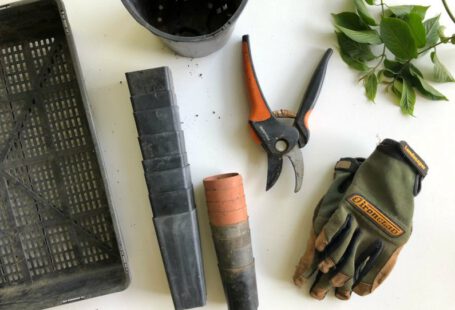**Why Is it Important to Test Soil before Planting?**
When it comes to gardening and agriculture, the importance of soil testing cannot be emphasized enough. Soil is not just a medium for plants to grow in; it is a complex ecosystem that plays a crucial role in the health and productivity of plants. Before you start planting in your garden or farm, conducting a soil test is a vital step that can make a significant difference in the success of your crops. In this article, we will delve into the reasons why it is essential to test soil before planting.
**Understanding Soil Composition**
Before you can effectively nurture and cultivate plants, it is crucial to understand the composition of the soil in which they will be growing. Soil is made up of a combination of organic matter, minerals, water, and air. The balance of these components can vary greatly depending on factors such as location, climate, and previous land use. By conducting a soil test, you can gain valuable insights into the pH level, nutrient content, and texture of the soil on your property.
**Optimizing Nutrient Levels**
Plants require a variety of nutrients to thrive, including nitrogen, phosphorus, and potassium. However, the availability of these nutrients in the soil can fluctuate based on a range of factors. Over time, the soil may become depleted of essential nutrients, leading to poor plant growth and low yields. On the other hand, excessive levels of certain nutrients can also be harmful to plants. By testing the soil before planting, you can determine the existing nutrient levels and make informed decisions about the types and amounts of fertilizers to apply.
**Balancing Soil pH**
Soil pH is a critical factor that can significantly impact plant growth. The acidity or alkalinity of the soil can influence nutrient availability, microbial activity, and the overall health of plants. Different plants have varying pH requirements, so it is essential to ensure that the soil is within the optimal range for the crops you intend to grow. A soil test can reveal the current pH level of the soil, allowing you to take corrective measures such as adding lime or sulfur to adjust the pH as needed.
**Identifying Soil Contaminants**
In addition to nutrient levels and pH, soil testing can also help detect the presence of contaminants that may be harmful to plants or humans. Heavy metals, pesticides, and other pollutants can accumulate in the soil over time, posing a threat to both the environment and food safety. By conducting a soil test, you can identify any potential contaminants and take steps to remediate the soil before planting. This proactive approach can help ensure the health and safety of your plants and those who consume them.
**Promoting Sustainable Practices**
Soil testing is not just about maximizing crop yields; it is also a key component of sustainable agriculture. By understanding the unique characteristics of your soil, you can implement targeted strategies to improve its quality and fertility without resorting to excessive chemical inputs. This holistic approach not only benefits the environment but also contributes to long-term soil health and productivity. By testing the soil before planting, you are taking a proactive step towards sustainable land management practices.
**Making Informed Decisions**
In conclusion, soil testing is an essential practice that can provide valuable insights into the health and fertility of your soil. By understanding the composition, nutrient levels, pH, and potential contaminants in the soil, you can make informed decisions about how to best nurture your plants and maximize yields. Whether you are a home gardener or a commercial farmer, investing in soil testing before planting is a wise decision that can lead to healthier crops, improved soil quality, and a more sustainable agricultural system.





